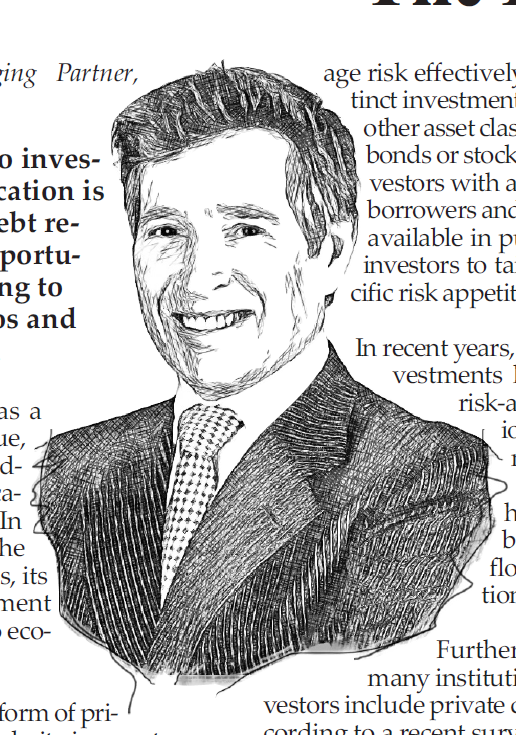PRESS RELEASE
PRESS RELEASE – February, 10th 2022
Private equity will likely have a solid 2022, as money managers and the well-off continue to seek performance and diversification, Shanu Sherwani, a private equity analyst, writes in this guest column. More secondary investors are expected to enter the market, while use of DLTs (the technology also known as the blockchain) could also pick up.
Alternative investments will remain popular in 2022, and they won’t just be institutional investors looking for good returns. While the European private equity market anticipates another solid year, sector members remain realistic about the risks that could derail the world economy’s still-fragile recovery.
Private equity is becoming more popular among retail and high-net-worth investors searching for returns that surpass the stock market. PE funds have a 15-year IRR horizon of 12.5 per cent, rising to 21.3 per cent in 2020, according to Pitchbook’s Global Fund Performance Report, whereas the S&P 500 has returned around 9.7 per cent annually. Wealth managers are increasingly looking for new ways for these investor groups to access private markets, with fund structuring allowing a more comprehensive range of investors to invest in alternative asset classes.
According to Pitchbook’s 2021 Annual European PE Breakdown, deal flow in 2022 will be buoyed by large amounts of dry powder and robust debt markets. However, it is unlikely to surpass the record high seen last year, which totalled nearly €755 billion (about $856 billion) invested across almost 7,200 deals.
External variables such as increased inflation and the potential effects of new coronavirus strains are among the challenges that could affect private equity investors and their portfolios in 2022. However, both the public and private equity markets are expected to continue to grow in 2022, despite the much-discussed inflation danger and the resulting rising pressure on interest rates as a result.
Mega-funds
Despite a minor slowdown in PE fundraising in 2021, with around €90 billion raised across 145 funds compared to €93 billion across 199 funds the previous year, LPs are projected to remain bullish on PE allocations–particularly when making commitments to GPs with a solid track record.
German institutions, for example, have been cautious in their embrace of private equity. However, they are growing their allocations, and many more are entering the asset class for the first time.
As has been the case in recent years, a significant portion of this additional capital is projected to flow to fewer funds. According to the 2021 European PE Breakdown, 41% of the money collected last year came from just four mega-funds: EQT IX, Apax X, Ardian Buyout Fund VII, and a Partners Group buyout fund. In addition to favoured managers, limited partners will gravitate toward those offering greater diversity.
Over the last several years, there has been an increase in the number of multi-strategy managers, particularly appealing to some limited partners looking to develop concentrated portfolios yet seeking enough diversification across many strategies, such as fund of funds managers like SwanCap Partners and ATP Private Equity Partners.
Strip sales
Furthermore, due to the increasing demand for secondhand holdings in private equity assets, more firms may decide to sell a portion of their fund portfolios in a transaction known as a strip sale as the market for secondhand stakes in private equity assets continues to heat up. However, according to intermediaries, the pace is picking up this year. Many strip sales in the works for 2022 are supported by investors such as financial institutions, insurance firms and even family offices.
According to secondary advisers, high valuations for private market assets, as well as a vast amount of unrealised value sitting in private funds, particularly those focusing on technology industries, will make strip sales more attractive this year.
In such transactions, a private equity firm sells a percentage of its ownership in all or some of the underlying assets in its funds to a special purpose investment vehicle backed by one or more secondary investors while remaining under the management of the private equity firm’s control. Some companies seek these transactions to free up capital on their balance sheets, while others use them as the foundation for a new investment plan.
The proceeds of a strip sale may also be used to purchase some time for fund management by giving the manager additional recycled capital that may be used to invest in new ventures.
The general partner will have between nine and twelve months of dry powder to invest, which will allow them to postpone their fundraising efforts. It is anticipated that the fundraising market will be highly saturated in 2022, and the strip sale could help them debut in an environment that is more conducive to meeting their fundraising goals.
Distributed ledger technologies
In addition, to meet the expanding investor reporting and accounting requirements, technology must be fit for purpose. The adoption of distributed ledger technologies in private market funds is expected to increase by 2022, obviating the need for manual operations and allowing for more efficient service of high volume, high contact funds. The industry’s future will be shaped by digitising data flows, accessibility and process transparency in a blockchain-like design.
Private equity investing is a multi-year process, as the most successful portfolios are diversified collections of funds with varying vintage years or the date the funds began investing. A rise in mergers and acquisitions, buyouts and special-purpose companies, all powered by unprecedented fiscal and monetary assistance, is expected to define the private equity funds investing in 2022. Increased stock market volatility and uneven economic development will be factors to consider for funds investing in the coming year, both of which have the potential to produce pockets of opportunities.
by Shanu Sherwani






